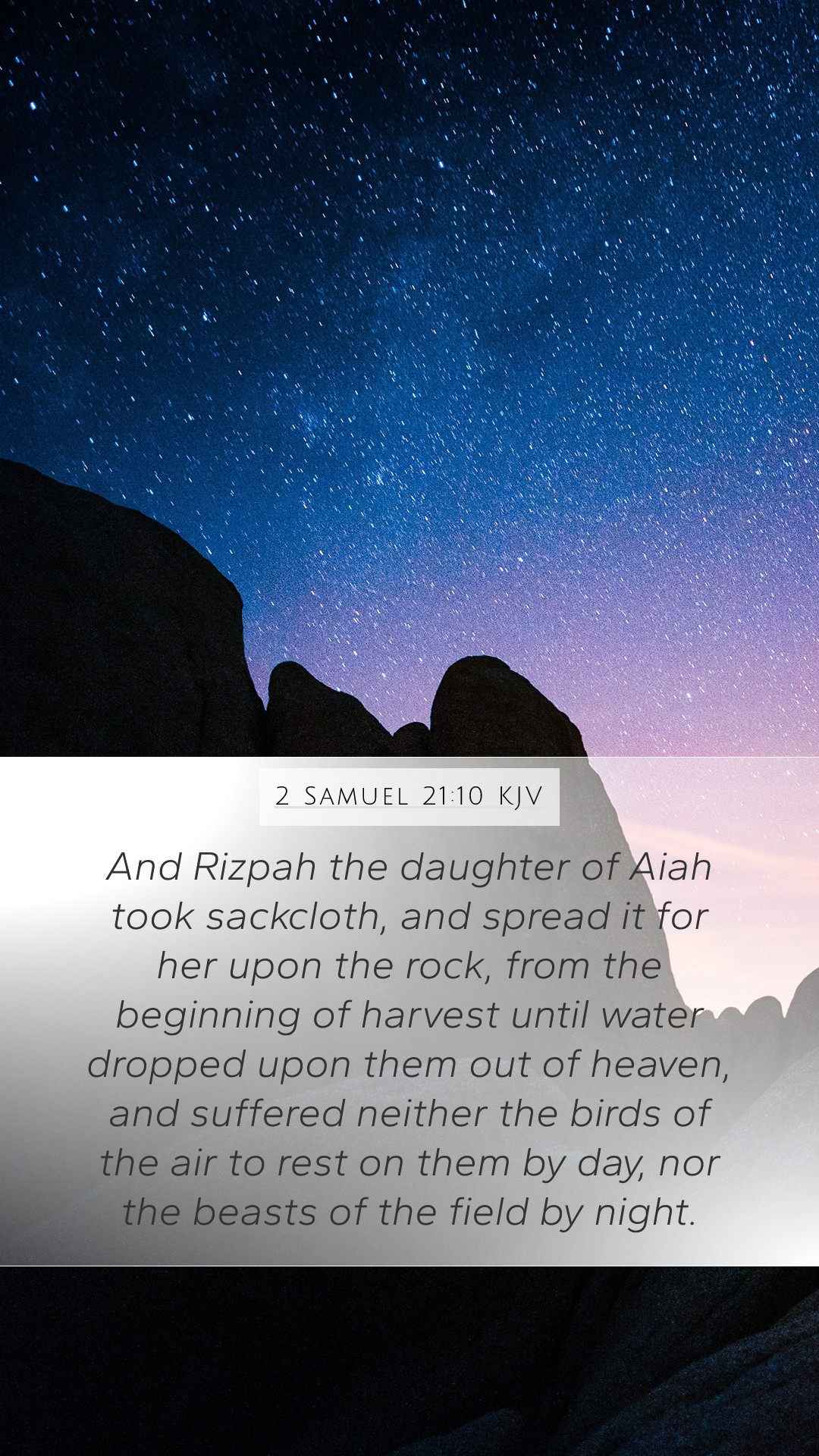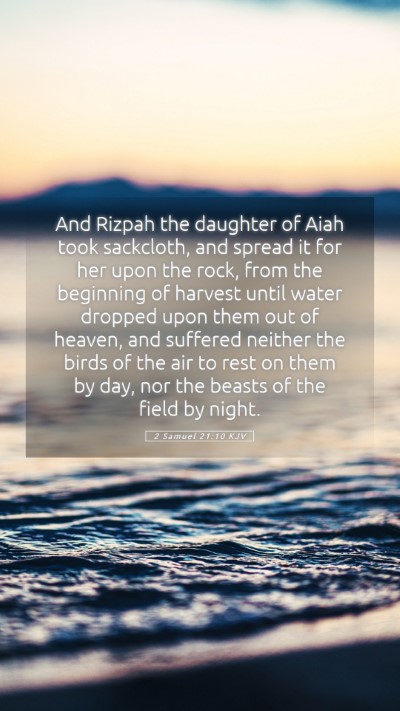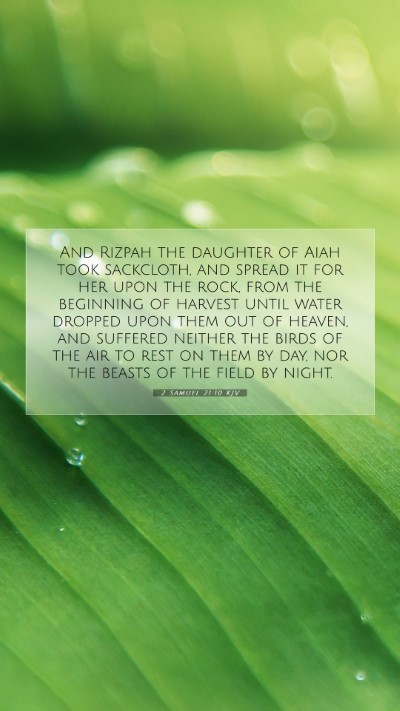Understanding 2 Samuel 21:10
The verse 2 Samuel 21:10 states, "And Rizpah the daughter of Aiah took sackcloth and spread it for herself upon the rock, from the beginning of harvest until water dropped upon them out of heaven, and suffered neither the birds of the air to rest on them by day, nor the beasts of the field by night." This poignant verse captures a profound moment that reflects themes of mourning, justice, and maternal devotion.
Historical Context
To fully grasp the significance of this verse, it is essential to consider its historical background. This period in Israel's history is marked by chaos and struggle, particularly in the context of King David's reign. The actions of Rizpah represent a reaction to the harsh realities faced by the people of Israel at that time, including the consequences of sin and the need for divine justice.
Bible Verse Meanings and Interpretations
-
The Role of Rizpah:
Rizpah's actions illustrate incredible strength and determination. As Matthew Henry notes, her mourning symbolizes a fierce loyalty and love for her sons who were executed due to the guilt of Saul's house. This devotion underscores the depth of a mother's grief and her fight against injustice, drawing the attention of both the people and God.
-
The Significance of Sackcloth:
The act of wearing sackcloth signifies mourning and repentance, as explained by Albert Barnes. Rizpah’s use of sackcloth shows her identification with the deep sorrow of her loss and a cry for justice in a world that had often neglected it.
-
Divine Justice:
Adam Clarke offers insight into the broader implications of this story, suggesting that Rizpah’s vigilance over the bodies signifies a pursuit of divine justice. Her refusal to allow birds or beasts to desecrate the remains serves as a symbolic act of reverence for the deceased and a plea for recognition of their humanity and their rightful place before God.
Application in Daily Life
The narrative of Rizpah encourages us to reflect on our own responses to loss and injustice. It serves as a reminder to advocate for those who cannot advocate for themselves, and to embody resilience in the face of adversity. This verse can prompt discussions in bible study groups and online bible studies as members explore themes of justice, advocacy, and the emotional journey following trauma.
Cross References
-
2 Samuel 21:9: Discusses the execution of Saul’s descendants, establishing the context for Rizpah's mourning.
-
2 Samuel 3:7: Provides insight into Saul’s legacy and the ramifications for his family.
-
Matthew 5:5: "Blessed are the meek: for they shall inherit the earth," showcasing the value of humility and grief in God’s eyes.
Conclusion
In summation, 2 Samuel 21:10 encapsulates a powerful message about grief, justice, and a mother’s love. The insights gained from various Bible verse commentaries can enrich bible study resources and enhance our biblical exegesis as we seek to apply these profound themes to our lives. This passage invites deeper scripture analysis and prompts us to ask ourselves how we can embody the attributes of love and justice in our everyday interactions.


